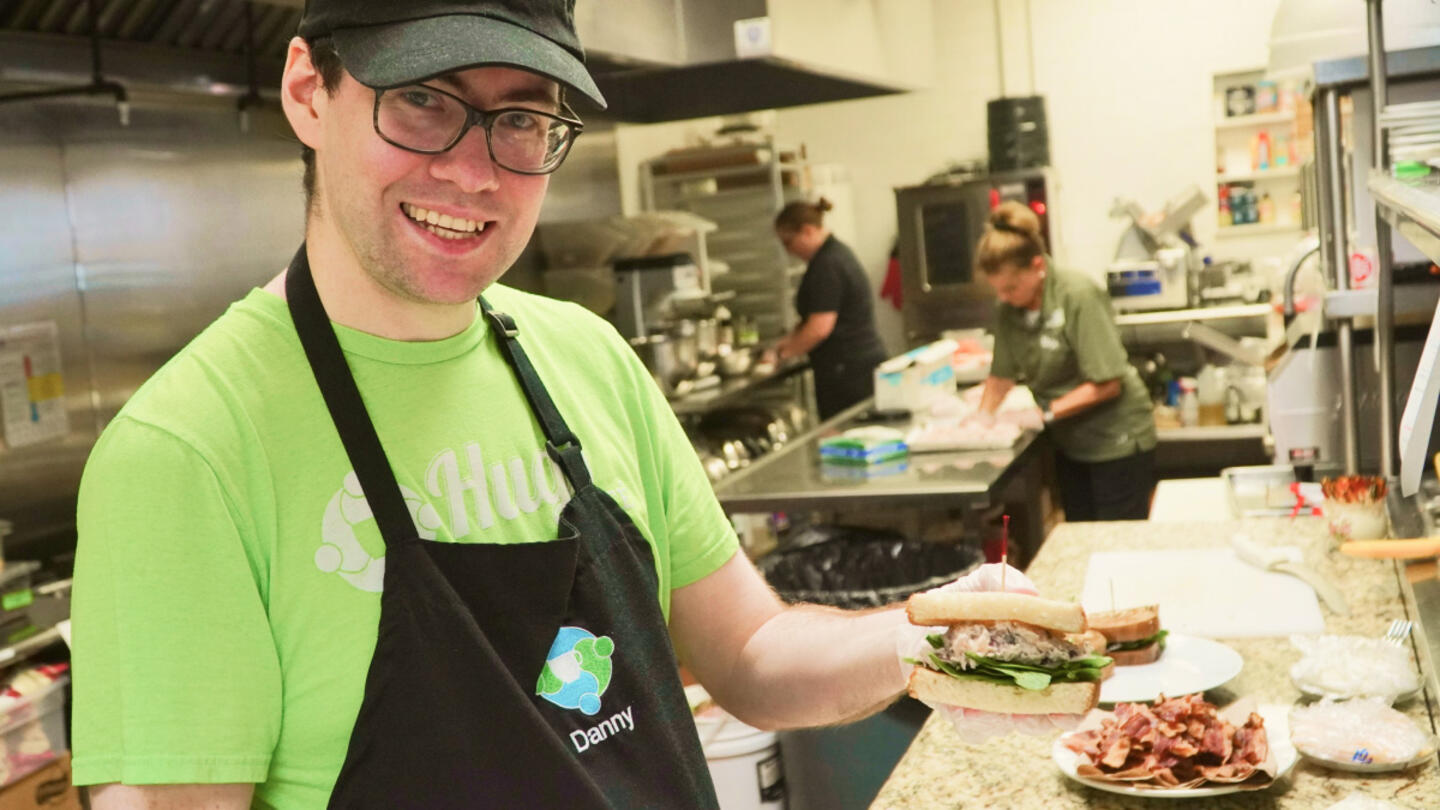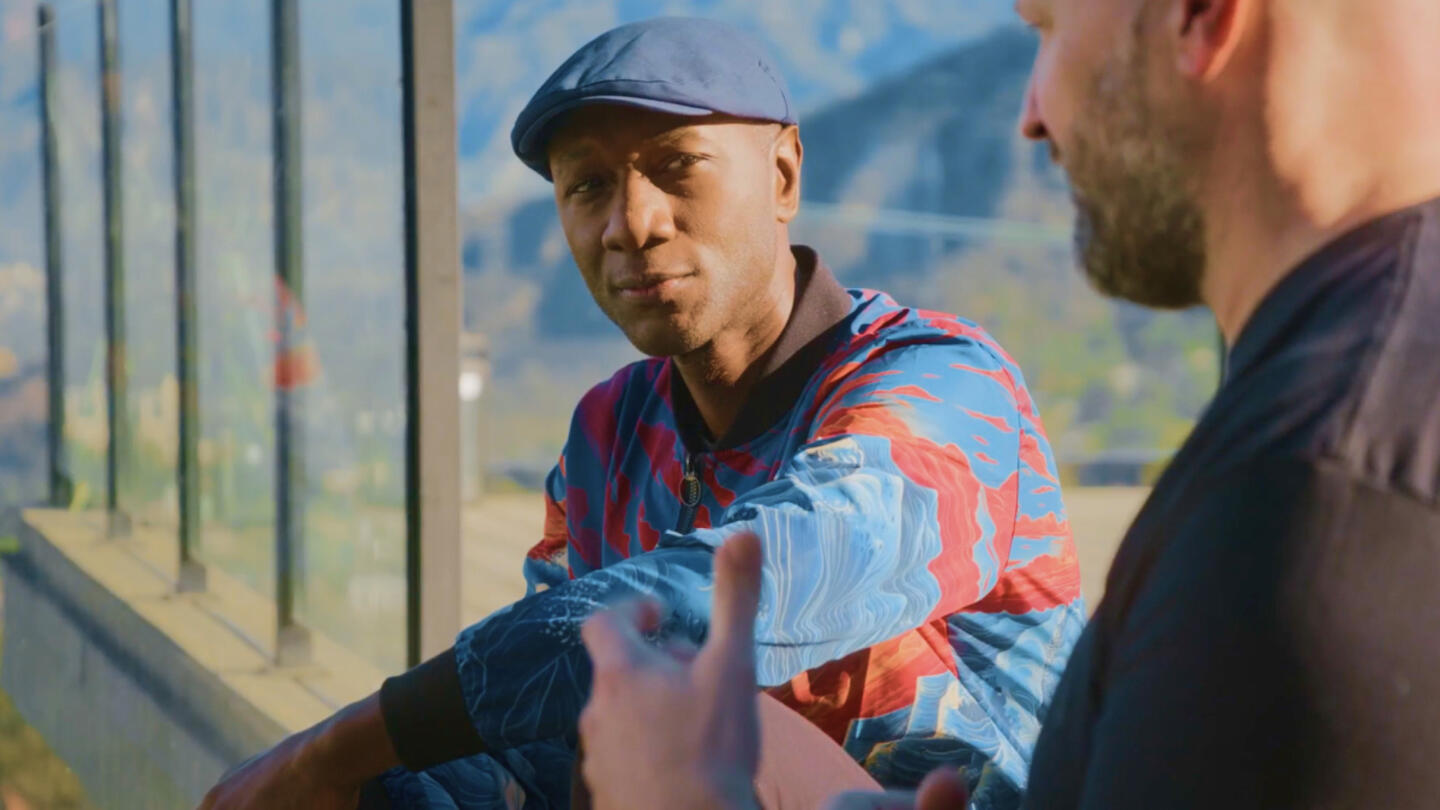Army Major Kareem Terrell carries his military identity everywhere he goes. Even without the uniform, it’s evident in his posture, his composure under pressure, and the way he speaks — so much so that people notice.
Recently, when his daughter’s car caught fire on the side of the road, a state trooper arrived and was struck by how calmly she handled the situation. “You must have grown up in a military family,” he remarked. Later, at the tow truck office, the associate assisting them made a similar observation.
After 25 years of service, military life isn’t just something Terrell and his family do — it’s who they are.
Except, that’s not entirely true. It’s a generalization that reduces Terrell to his military identity. In reality, he wasn’t thinking like a soldier. He was a father who had just experienced a terrifying moment with his child.
“They acted like everything would be OK because we’re supposedly prepared in ways most people aren’t,” he said. “That’s how others see our situation, but to us, this was just as critical and overwhelming as it would be for anyone else.”
No one should be defined solely by their job. Still, it happens — especially for service members, veterans, and their families. The military instills a strong sense of identity, but for most, even this career isn’t meant to last forever.
If your identity is tied to your military service and it ends, then what? Do you lose yourself, too?
Veterans face high rates of mental health struggles, substance use disorder, and suicide. Understandably, research has long focused on post-traumatic stress disorder as a likely cause. But PTSD affects only a small percentage of veterans — too few to explain suicide rates 1.5 times higher than the general population.
Researchers are now examining another factor: the profound loss of identity, purpose, and belonging veterans experience when leaving the military. A key indicator that this research is on the right track? Veteran suicide risk is time-dependent. They are 2.5 times more likely than active duty members to die by suicide within the first year of leaving the military, when the loss of identity and community hits the hardest.
“Overnight, you’re taking away my identity, my purpose, and my community,” said retired U.S. Army Lieutenant Colonel J.C. Glick, CEO of The COMMIT Foundation, a nonprofit that helps veterans transition into civilian life.
That kind of loss can be devastating, but it doesn’t have to be.
At COMMIT, former service members work one-on-one with coaches to rediscover who they are beyond the military. They’re not just reflecting. They’re digging deep, confronting tough questions, and figuring out what really drives them. They’re taking a step back to intentionally build meaningful lives beyond the uniform — finding new missions that let them use their skills and experience in ways that matter to them, their families, and their communities.
How would veterans’ mental health improve if transitioning to civilian life felt less like losing an identity and more like stepping into a new, meaningful mission?
The difference between a role and an identity
Here’s the thing: COMMIT isn’t a mental health organization, but discussions about identity, purpose, and belonging inevitably lead to mental health. The nonprofit helps service members and veterans identify their passions, build strong networks, and leverage their skills in civilian careers.
Rather than focusing directly on mental health, COMMIT steps in early — helping veterans navigate the transition before the identity crisis sets in and preventing any downward spiral before it can begin.
Glick would know. A former Army Ranger with 20 years of service and 11 deployments, he doesn’t talk just about his military accomplishments — he openly shares that he is a four-time attempted suicide survivor.
Even before leaving the military, Glick faced multiple identity crises. The first came when he was pulled from his role as an Army Ranger and reassigned to a desk job, stripping away the identity he had built in combat.
“I wasn’t a warrior anymore,” he said. “I had spent all my time in Special Operations, and then they placed me in Training and Doctrine Command. Eighteen months later, I made my first suicide attempt.”
He described the loss of identity and purpose veterans experience when they leave the military as similarly traumatic.
“I have friends that would make fun of me for calling it traumatic, but I’m sticking with it because that’s how many of us experience it,” he said.
Military careers begin with basic training, where recruits transform from civilians into warriors. “The government gives you an identity, a purpose, and a community,” Glick explained.
Everything that follows in a service member’s career is structured to reinforce those core elements. Military culture emphasizes discipline, selflessness, and the collective mission. Service members learn to prioritize the unit’s needs over their own.
Sign up for the Strong & Safe Communities newsletter for stories, ideas, and advice from changemakers working with their neighbors to address the biggest problems we face.
“Ask a Marine, ‘What are you?’ They’ll say, ‘I’m a Marine,’” said Glick. “There’s goodness and unity in that. But when you’re not wearing the uniform anymore, is it really helpful for you to continue to see yourself as a Marine? Do you continue to grow as a human and contribute to your ecosystem in a meaningful way? Or do you feel lost and segregated?”
Glick avoids calling the shift from service member to civilian a “transition” because that word doesn’t capture the magnitude of change that needs to happen. Just as civilians transform into warriors during basic training, when they leave service, those same warriors must transform again to become contributing citizens in their communities.
But this time, there’s no system providing them with identity, purpose, or community — they have to build it all themselves.
Glick wishes he had understood the need to transform when he retired a decade ago. Looking back, he’s proud of his professional success, but the path has been anything but easy — marked by struggle, setbacks, and loss.
He is finally feeling confident in his identity. Just in the last year, he realized he had been defining himself as “Jen’s husband” and “a dad and stepdad.” However, his coaches challenged him, suggesting that those are still roles, not an identity.
So he took a step back and dug a little deeper. This is what he learned: “I aspire to be kind, loyal, thoughtful, innovative, and driven,” he said. “That’s who I am. If I know who I am, I can apply those things to any role I’m given. I know who I aspire to be by what’s important to me. I constantly have to make sure that my actions are lining up with those aspirations. That’s my identity.”
The military provides a ‘realm of certainty’ that veterans lose when they leave
Military life is full of uncertainty and sudden transitions, but it also provides a strong sense of stability. This is true not just for service members but for their families as well.
The Terrell family has experienced countless sudden changes, long separations, and upheavals due to Kareem’s military career. One example: Just weeks after settling in Georgia, the Army reassigned Kareem to California. With little notice, the family packed up three kids, a dog, and a hamster, drove across the country, and spent six months living in a single hotel room while waiting for permanent housing.
“When the military calls, you gotta go, right?” said Teiko Terrell, Kareem’s wife.
Yet, they also deeply appreciate the stability that military life provides. “After a while, you learn to expect certain things in the military,” said Kareem. “There’s that familiarity that comes with being in the service and knowing your next job. You live in a realm of certainty.”
The dynamics of military living can be hard to comprehend unless you’ve lived them. For 25 years, the Terrells have been part of military communities where everyone understands the highs and lows of this way of life.
That’s all about to change: Kareem will retire in a few months.
When he first began thinking about retirement, the uncertainties of civilian life felt overwhelming. He had enlisted in the Army at 20, barely knowing who he was. A quarter century later, he still didn’t know — the Army had been doing that for him.
The decision to retire was also his first wide-open choice. In the military, he was used to having options: “You can go here or there” — both of them well-defined and predictable paths.
Retirement, however, was different. He and Teiko had to discover new paths for themselves and their family. “The uncertainty around retirement was probably more daunting than anything else,” said Kareem. “We just didn’t know what to expect.”
Distinguishing who you are from who you were
Fortunately, Kareem has been working with a COMMIT coach to develop a structured approach to discovering his identity beyond the uniform. His coach supported him as he navigated five “lines of effort”: getting to know himself, becoming who he wants to be, managing finances, tapping into a community, and achieving balance.
“What matters is the ability to distinguish who you are from who you were,” said Kareem. “I’ve taken the time to figure out how to distinguish myself from my military service, and now I can apply that very comfortably to the rest of my life.”
Working with his coach, Kareem realized he enjoyed his role as a program manager in the Army, but he found that the position looked different in civilian careers. His coach connected him with a network of program managers, opening the way for Kareem to find mentors.
“Sometimes there’s a difference between what you want to be and who you are on paper,” he said. “I had to decide, ‘What do I want to be?’ Then I found people already doing it and learned from them.”
At first, Teiko was hesitant about retirement, unsettled by the many uncertainties. She kept asking Kareem if maybe he should wait until he reached the next rank, running through countless questions: What if this happened? What if that went wrong? But as she saw Kareem shift from fear and uncertainty to confidence and excitement, she began to embrace the idea.
“Just watching him taking that challenge head-on,” she said. “It was difficult because I couldn’t be that right hand like he needed me to be. We were learning together, but seeing him grow into the person that he is now, I was finally like, ‘Yeah, life is going to be good. Life is going to be great.’”
Attending a spouse conference hosted by COMMIT was another turning point for Teiko. It connected her with a community that wasn’t tied to her husband’s active military service, giving her a sense of stability and hope for the future.
What’s next for the Terrells?
Kareem recently stepped into a new role as a program lead managing classified government contracts for a private software firm.
Teiko, with her many interests, is still exploring her next steps. For now, she’ll continue her work as a first responder while dedicating more time to her two businesses — a catering service and breeding and boarding American bulldogs.
“I’ve always wanted to go back to school and get certified as a dog trainer,” she said.
The possibilities are endless.
The COMMIT Foundation is supported by Stand Together Foundation, which empowers individuals to reach their full potential through community-driven change.
Learn more about Stand Together’s efforts to build strong and safe communities and explore ways you can partner with us.

People with disabilities want meaningful work — and Hugs Cafe is making it happen.

At this ‘resort,’ children with intellectual disabilities are seen as gifts to be celebrated and loved.

The Grammy-nominated artist is highlighting the stories we don’t get to hear every day.

With his latest project, Blacc isn’t just amplifying stories — he’s stepping into them
